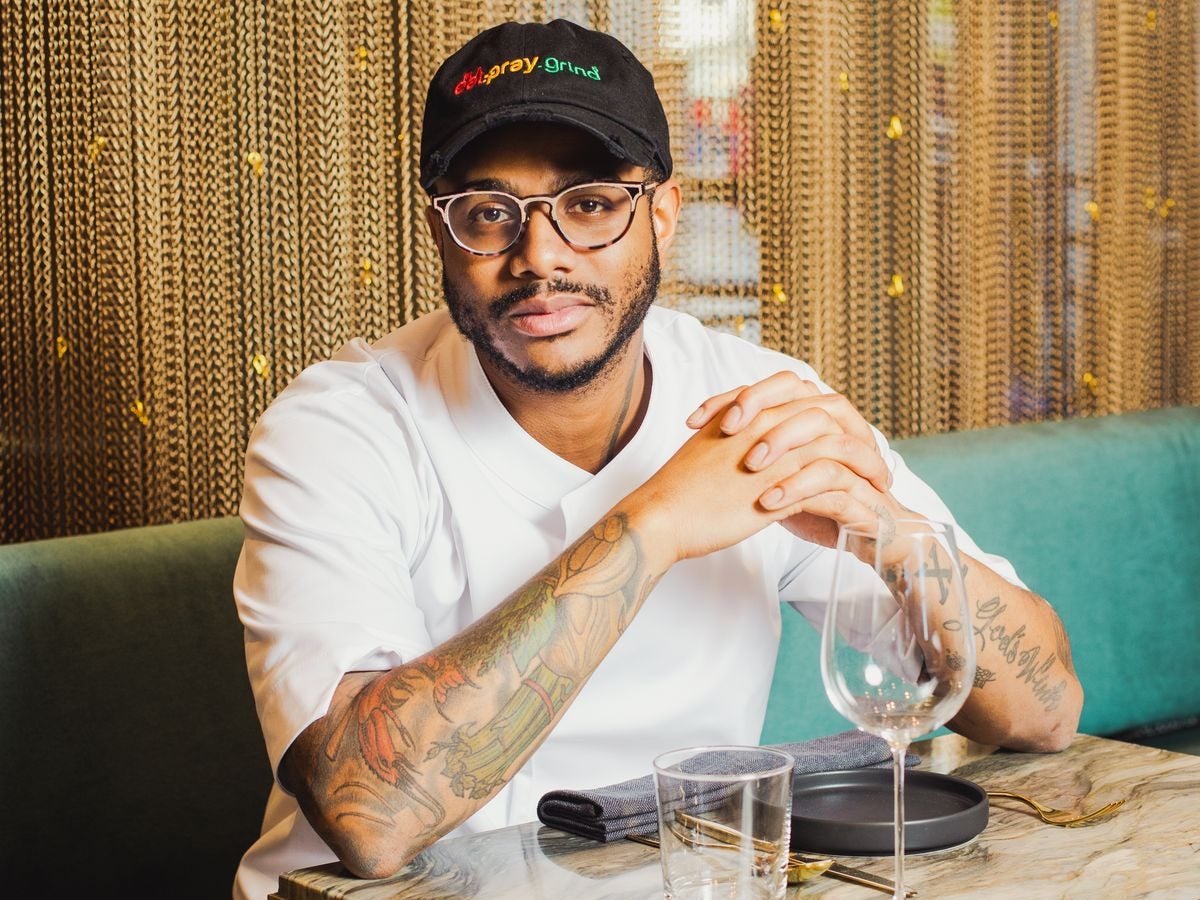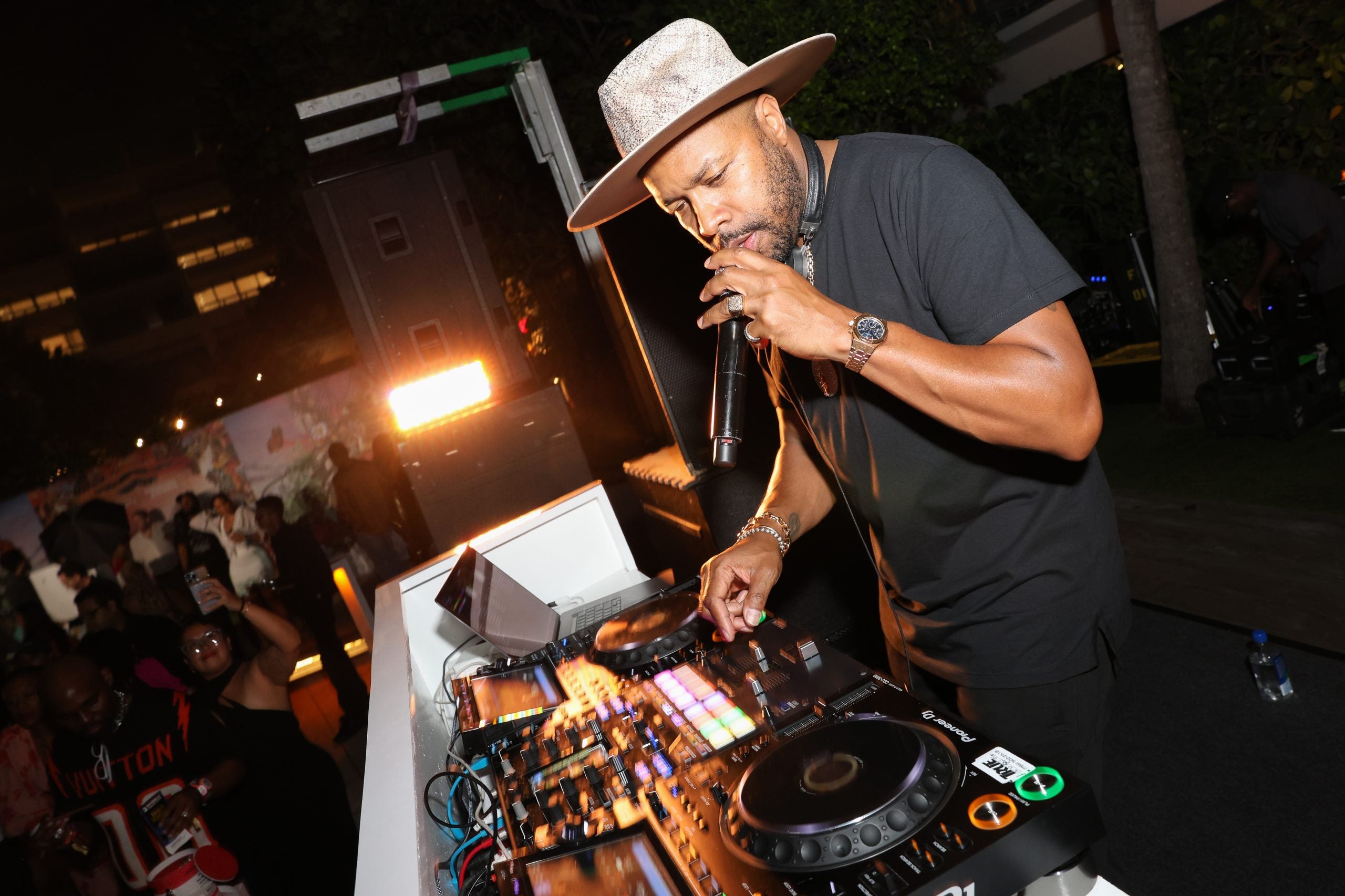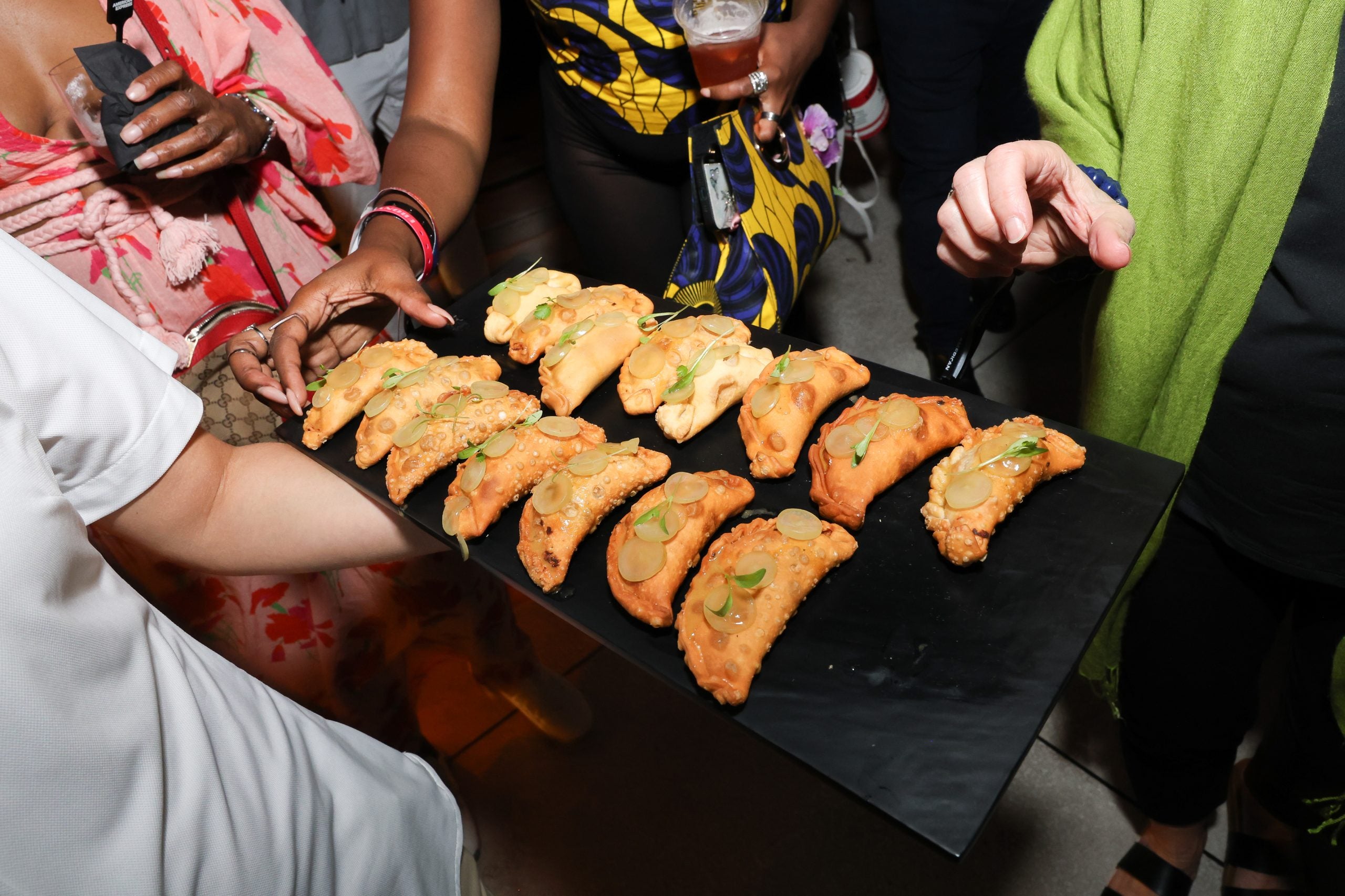
For years, Miami Art Week has established itself as a series of events that every artist must experience at least once in their lives. From the hundreds of exhibitions, installations, activities, and fairs such as Untitled Art, Scope, and Red Dot, one can literally feel the creativity throughout the atmosphere of Florida’s coast during Art Basel. Although he’s known as a leader in the culinary field, Chef Kwame Onwuachi sees many parallels between his craft and the art industry.
“The escapism you feel with art is similar to food,” the New York native tells ESSENCE. “Also, representation of oneself. When you’re eating in your own element, and out of whatever head space you’re in, it can bring you into a feeling of comfort, a feeling of nostalgia. I think art does the same thing.”

On the final evening of Miami Art Week, Onwuachi partnered with Marriott Bonvoy American Express Card Portfolio to host the 7th Annual Art Basel Party at the W South Beach Hotel. The night featured music by celebrity DJ D-Nice, and included works from acclaimed artists Kelly Dabbah and Jabari Jefferson.
Marriott Bonvoy American Express Card Members want access to memorable moments across a variety of their passion points, which is why they were excited to connect with Chef Kwame and Dabbah through food and entertainment. Like most events, the meal selection can make or break the entire experience, something that Onwuachi knows all too well.
“I think food goes with everything,” he says. “You can’t have an event without food, and food is an art form. So I thought it made sense. It’s the right collaboration, and the right partner.” In addition to setting the tone for Art Basel’s most talked about function, Onwuachi is also a James Beard Award winner, a best-selling author, and the owner of one of the hottest restaurants in New York City—Tatiana in Lincoln Center. At only 34-years-old, he is a symbol of optimism for people of color in the culinary field.

Attributing his success to “hard work, and the grace of God,” the young chef also thinks it’s critical to examine the importance of representation in the food industry on a global scale. While there are many BlPOC that have reached high levels of success in this business, as usual, there could be an increase in the amount. “I think we’ve always been here since day one,” he explains. “So I think for me, I have a different viewpoint of it because I’m surrounded by it. My mother’s a chef, my grandmother’s a chef. I come from a long line of restaurateurs. I think you can’t really even talk about American cuisine without talking about West African influence.”
“I think in terms of media representation, there could be more,” Onwuachi continues. “But I think that will always be a fight from the top to bottom, just making sure that there are more food editors of color, and food writers of color, so then they can speak about chefs of color making an impact.”
How much of an impact that he will have on this earth is something that remains to be seen, because for Onwuachi, sky’s the limit.